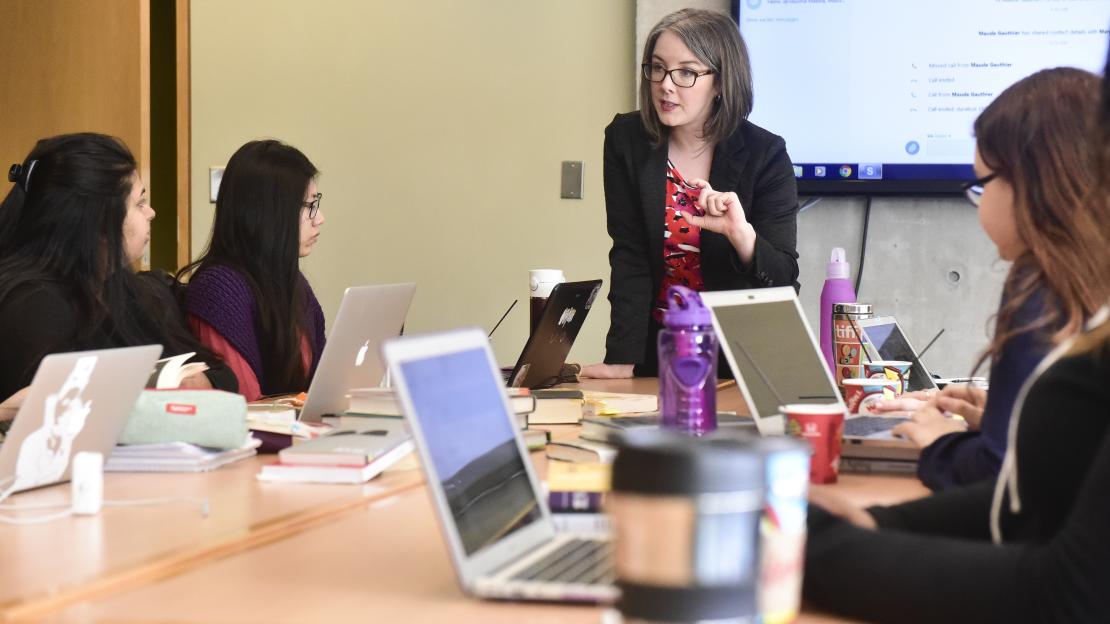Andrea Charise is looking to help others understand the aging process in new ways. Her latest project will highlight the experiences of aging among Scarborough residents using a “digital storytelling” format, which has netted a new fellowship.
Charise, assistant professor of English and the Interdisciplinary Centre for Health and Society, is the winner of the first Jackman Humanities Institute-University of Toronto Scarborough Digital Humanities Fellowship. She’s working to communicate the complex and diverse experience of aging through digital methods in, The Resemblage Project: Remixing Scarborough’s Stories of Aging. Her project will create a digital archive of community-engaged art that explores the experiences of aging and old age.
“I’m especially encouraged by what this research fellowship means for advancing arts and humanities-based approaches to health, illness, and aging in Canada, not just for my own research, but as a model for graduate and undergraduate collaborators as well,” Charise says.
“Resemblage” is a “portmanteau” term (that is, one that combines parts of two or more words) created by Charise that uses the project’s main concepts of resemblance (experiences and stories through art), assemblage (the stories and their art) and age (of the storytellers). Charise says these concepts speak to the project’s goal of using digital methods to “mash up knowledge creation, research, and activism around aging.”
She began conceptualizing the project almost a decade ago. As a PhD candidate, Charise and her colleague Michael Massimi (PhD, 2012) created a new approach to the study of Human-Computer Interaction called thanatosensitivity. Thanatosensitivity is an approach to digital research and design that integrates morality, death and dying into the way technologies are designed for users.
Years later as an associate researchers at Concordia University’s Aging, Communications and Technologies Project she explored the ways evolving technologies can isolate older aged people – a study known as "digital ageism." In recent years, Charise has also taught an advanced seminar called Aging and the Arts at U of T Scarborough.
“I immediately saw the potential for new media as a means of transforming our understanding of aging through digital arts and humanities-based approaches,” Charise says.
“My students’ enthusiasm for arts-based approaches to learning about aging just solidified my goal to develop digital methods in arts-based Age Studies research, teaching, and knowledge creation.”
She says she is most excited for The Resemblage Project to address some of the gaps in traditional Age Studies. Charise says these limitations include excessive focus on white, Western experiences of aging, and on the suggestion that older people engage with technology though issues like lack of access, social isolation, and vulnerability to online fraud.
“My aim is to turn up the volume on older people’s wide-ranging experiences and creative potential right here in the Scarborough community,” says Charise.
Charise is the lead developer of Canada’s first undergraduate Health Humanities program, to be implemented at U of T Scarborough this fall semester. Charise is also the founding director of SCOPE: The Health Humanities Learning Lab, a health research initiative based in arts and humanities, last summer
“If Age Studies and other arts and humanities-informed approaches to health studies, are to thrive in this country, we need critically and aesthetically provocative materials that speak to profoundly varied experiences of what it means to grow old.”
